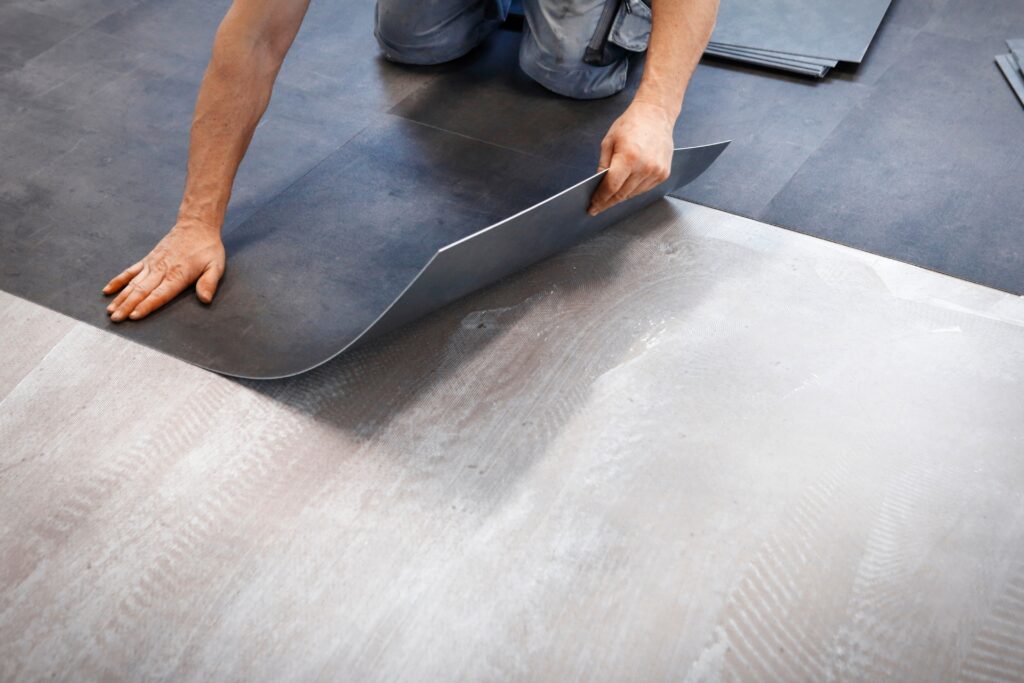Tiling a garage floor is common among home and business owners for many reasons. They offer various benefits like customized designs and lower costs than other flooring materials. Depending on your property, you may want to consider other garage flooring options to suit your unique needs.
Learn more about the pros and cons of garage floor tiling, the most popular types, and best-use applications to choose the best option for your property.
Can You Tile a Garage Floor?
Yes, tiling a garage floor is possible and very common. Like bathrooms and kitchens, tiles are also a practical flooring option for indoor and outdoor garages. They provide similar advantages like easy installation and cleaning.
What Are the Different Types of Garage Flooring Tiles?
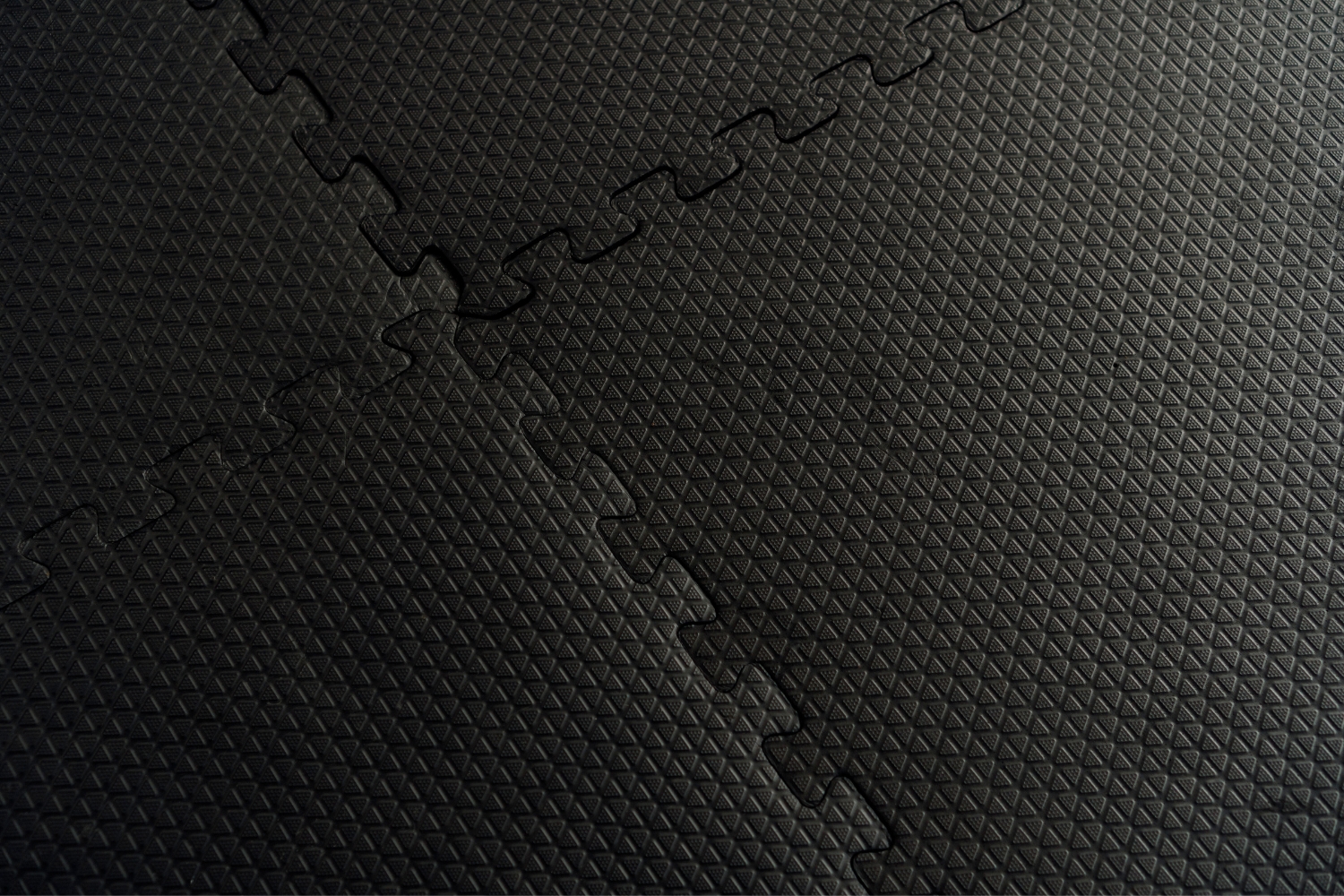
Many types of tiles for garage floors exist. The most used tiling materials and best-use applications include:
- Garage Rubber Floor Tiles: Best for non-automotive garages, like home gyms, as they can stain from oils and tires.
- PVC Garage Tiles: Made with soft and flexible vinyl. Best for outdoor garages with low traffic or non-automotive since they have lower air circulation and tend to stain from oil-based liquids.
- Garage Carpet Tiles: Best for converted garages like game rooms or business lobbies, as it has strong insulation to keep the space warmer.
- Plastic Garage Floor Tiles: Made with soft or hard plastic, easy to clean, and oil/water-resistant. Soft plastic is best for quieter and more comfortable flooring. Hard plastic tiles are best if you want a sharper edge for your garage door area, simpler installation, and a lower-cost flooring material. However, garage floor plastic tiles aren’t meant for heavy-impact traffic as they can crack.
- Interlocking Garage Floor Tiles: Tile squares that interlock without adhesives or tools. They keep the flooring surface clean, easier to install/remove, and promote air circulation. Most tiling materials interlock except for porcelain, ceramic, and glass. Best for heavy traffic garages as they have strong wear and tear, traction, and oil/water resistance, depending on the material. They come as puzzle designs or hidden to keep the edges hidden.
Advantages of Tiling a Garage Floor
Below are the main benefits of tiling a garage floor and why people often consider this flooring option.
Customized Flooring Designs
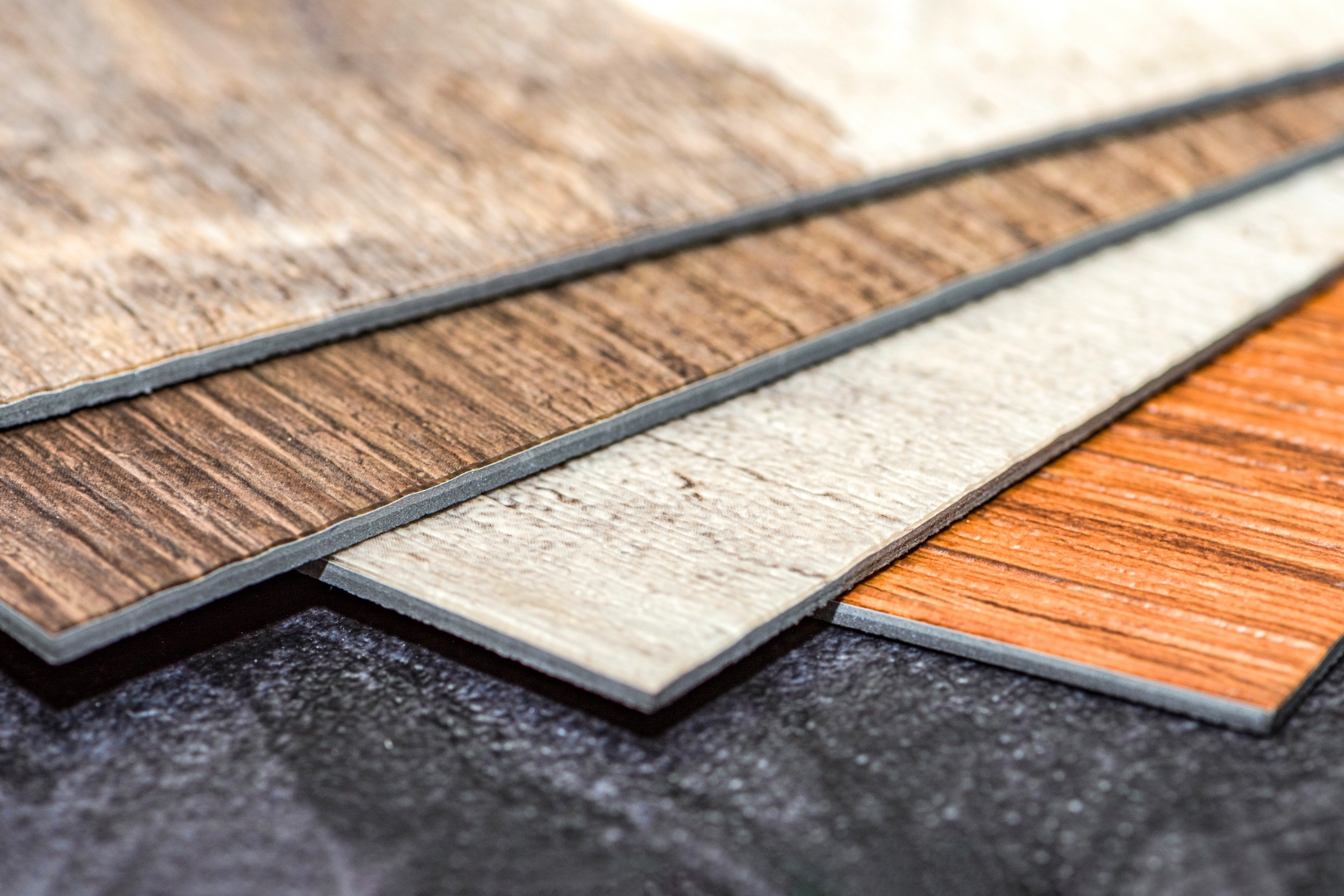
Garage tiles come in many colors, shapes, and sizes, offering more customization options. Various patterns are also available, like diamond, checkered, and woven. Whether you’re an automotive dealership that wants to enhance your interior look or a homeowner who values aesthetics, garage flooring tiles give you more design choices.
Waterproof Protection
Depending on the tiling materials, some options provide waterproof garage floors, including:
- Rubber tiles
- PVC tiles
- Plastic tiles
Carpet tiles for a garage floor, of course, aren’t waterproof. Waterproof tiles are best if your garage has heavy traffic and use, like an at-home gym or an outdoor commercial parking garage. They’re resistant to water, oil, and most solvents by blocking liquid absorption.
Durable Materials
Tiling a garage floor is the go-to option for many home and business owners due to their durability. You want a long-lasting garage floor material that can withstand how you’ll utilize your space. Some garage tiles are more durable than others, depending on the material and if it’s the best-use application.
For example, you wouldn’t put garage floor carpet squares in a vehicle-heavy traffic area due to engine oil leakage that can stain the fabric.
Simple Installation & Removal
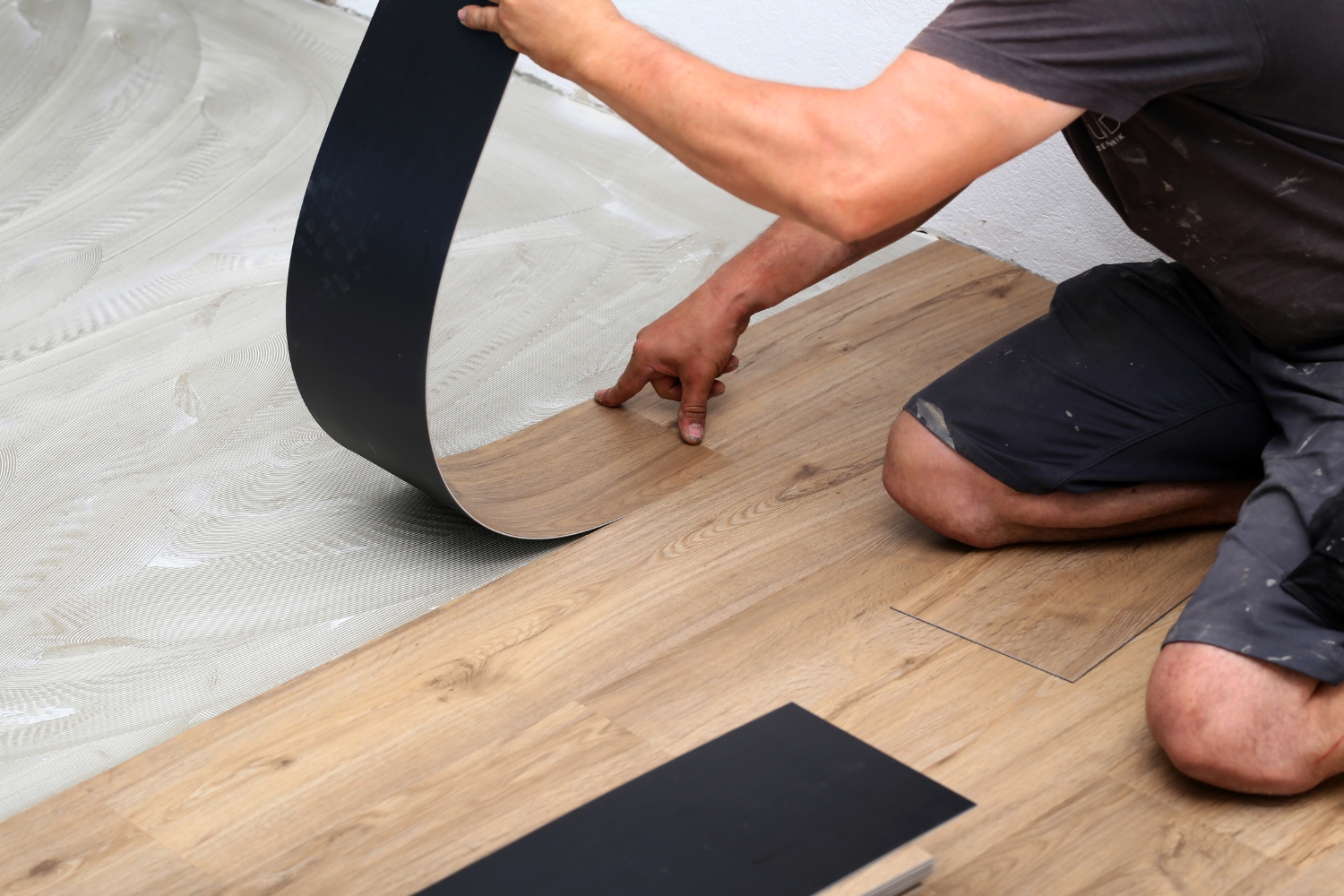
One of the biggest benefits of a tiled garage floor is its installation and removal processes. They’re easy and fast to install or remove if you want to switch to a different material option or replace it as needed. If you use your garage as a multi-functional space, like a warehouse or workspace for home improvement projects, tiles are a practical option.
Depending on the material, most garage tiles are installed via adhesion and rubber mallets onto your floor. For removal, you’ll need a solvent and chisel to pry the tile off your floor with some heat if there’s strong resistance to prevent scratching.
Interlocking tiles for garage floors don’t require adhesion or tools, as they can simply be pressed onto your floor without an underlayment and snap or click together. For removal, you’ll either need to remove the tiles individually or by strip, depending on if they’re puzzle-style or hidden interlocks.
Lower Costs
Because garage floor tiles are simple to install and remove, they’re typically lower cost than other material options. Depending on the material, garage tiles cost between $4 to $8 per square foot, excluding labor rates.
Disadvantages of Tiling a Garage Floor to Consider
Although a tiled garage offers many benefits, there are some disadvantages you should also consider:
Can Be Costly for Larger Garages
Since garage tiles are priced per square foot, they can cost more for larger spaces, like commercial and multi-car residential garages. Additional pricing factors include materials, quality, and garage flooring service providers, which can also increase average costs with bigger garages.
Specific Cleaning Products Required for Some Materials
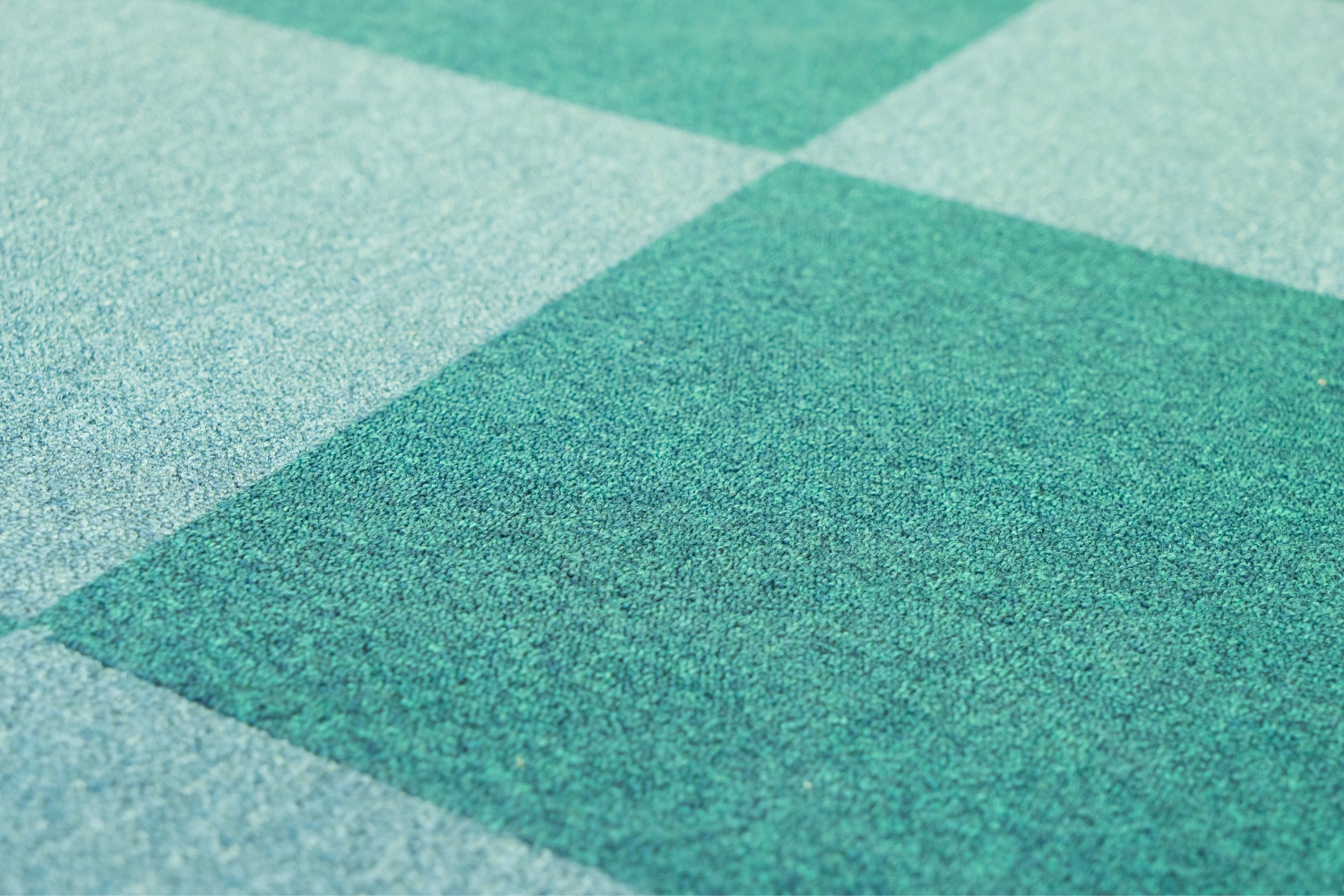
Using harsh cleaning chemicals, like bleach or sudsy liquids, on your garage tiles can damage, discolor, or leave a residue on their surface over time. Depending on the type of tile, you may need to buy material-specific cleaning products.
Most garage floor tiles only require simple surface cleaning, like sweeping, vacuuming, garden blowers, dry mopping, and mild detergent or soap and water solutions. Materials, like carpet tiles, require steam cleaning and shampooing as needed. Interlocking tiles may require ammonia-based floor cleaners if they’re plastic.
Additional Air Circulation is Recommended for Certain Garage Tiles
While some garage flooring tiles are waterproof, additional air circulation is recommended for specific materials. For example, PVC garage tiles tend to have lower circulation, which can cause mold and mildew buildup underneath them without proper airflow. Ceiling fans and periodically opening your garage doors (during non-humid seasons) help dry the moisture underneath faster.
Maximize Your Garage Floor’s Lifespan & Investment with Showroom Garage Flooring
Whether it’s a tiled garage or not, it can be overwhelming to pick a flooring system with many materials available. At Showroom Garage Flooring, we can help you determine which flooring option best suits your needs and garage utilization. We offer 24-hour turnaround times with lifetime warranties on our new flooring services.
Ready to give your garage the durable floor it deserves?
Learn more about our residential and commercial garage flooring services, or schedule a free onsite assessment today!

